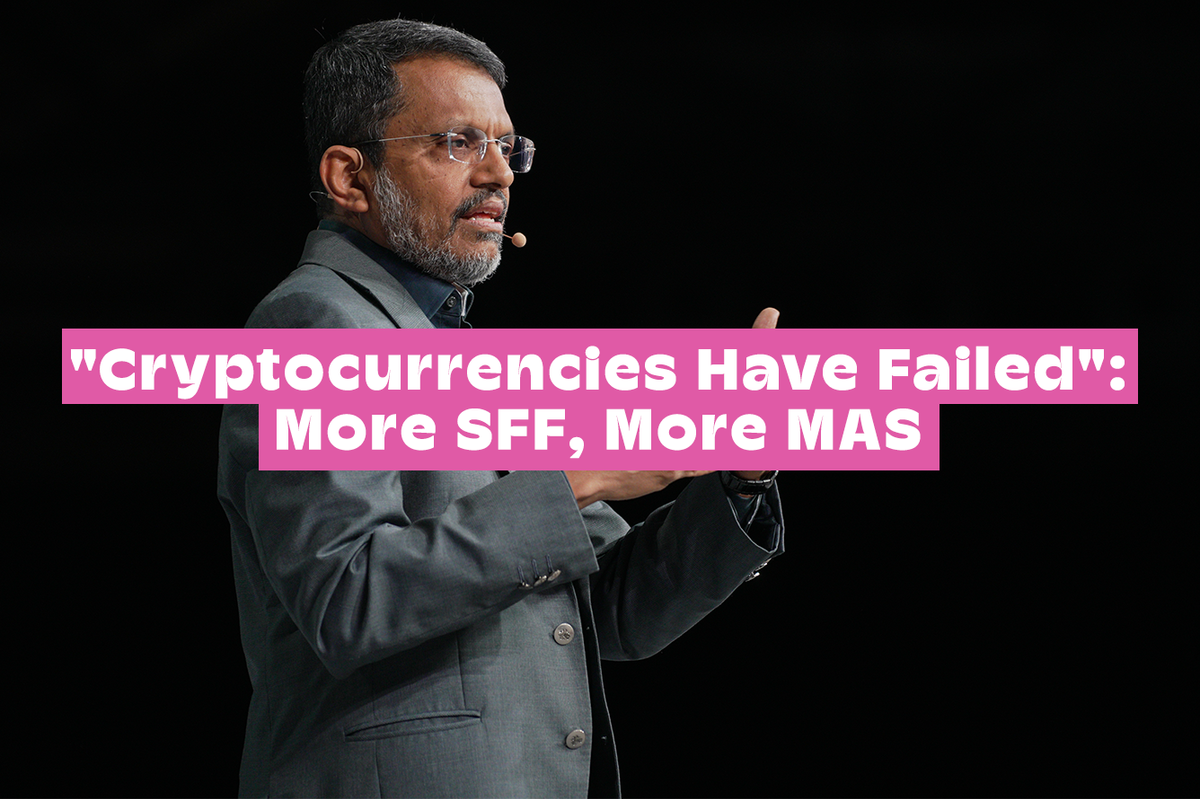Table of Contents
Singapore's Ambassador for Climate Action, Ravi Menon, delivered a speech at the Point Zero Forum in Zurich, Switzerland this week emphasizing asset tokenization as a transformative force for the financial industry, along with artificial intelligence, and quantum computing.
In his keynote address at the policy-technology dialogue convening central banks, regulators, and industry leaders, Menon highlighted the core benefits of tokenization, including the creation of a more efficient global financial architecture.
By representing ownership of real-world assets like bonds, foreign exchange, and even funds through digital tokens, tokenization facilitates faster and more streamlined transactions, the managing director of the Monetary Authority of Singapore (MAS) from 2011 to 2024 said.
This technology also eliminates the need for intermediaries in asset exchange, allowing for direct transfers between parties. Additionally, tokenization unlocks fractional ownership, making previously inaccessible assets available to a wider range of investors.
Ravi Menon, Singapore's Ambassador for Climate Action and Senior Adviser, National Climate Change Secretariat (NCCS) kicked off #PZF2024 by highlighting three transformative technologies in finance:
— Point Zero Forum (@pointzeroforum) July 2, 2024
Asset tokenisation has two critical features that can fundamentally transform… pic.twitter.com/S5rXhyx2fU
The speech wasn't all sunshine and roses, however. Menon acknowledged the challenges hindering wider adoption. One major hurdle is the lack of interoperability between different digital asset networks. This fragmentation creates friction and limits the potential for seamless, global transactions.
Fortunately, initiatives like the MAS' Global Layer One (GL1) project are working towards establishing open and interoperable networks. GL1 aims to create a foundation for smooth cross-border transactions of tokenized assets, Menon noted.

"The financial architecture of the future may well be one where a tokenised financial system co-exists seamlessly with a more traditional one. It is a vision that is by no means certain but well worth realising – for what it means for economic efficiency, expanded opportunity, and financial inclusion," Menon said.
Menon's speech paints a clear picture: asset tokenization is poised to revolutionize finance. With its ability to enhance efficiency, democratize access to investments, and create a more interconnected financial system, tokenization presents a compelling future for the industry. While challenges remain, ongoing efforts to address them suggest a bright future for digital assets and the transformative role they will play.
The discussion extended beyond tokenization, with Menon exploring the interplay of Artificial Intelligence (AI) and Quantum Computing with finance. AI's potential to enhance financial services through credit assessment, fraud detection, and personalized advice was acknowledged.

However, concerns around data privacy, explainability of AI decisions, and ensuring fair outcomes were highlighted. Quantum computing's promise for complex financial modeling and risk management was addressed, along with the crucial need for proactive measures to mitigate the risks it poses to encryption protocols, potentially jeopardizing financial stability. Menon concluded by emphasizing the importance of collaboration in managing these technological advancements and harnessing their benefits for a transformed financial landscape.










